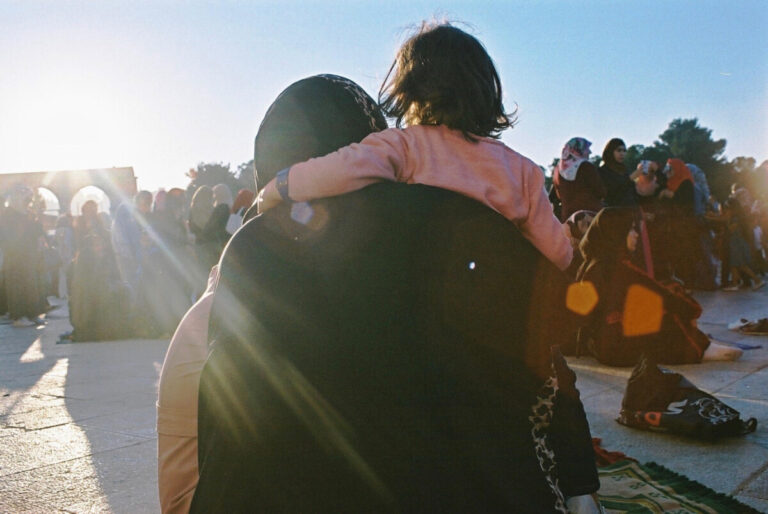Ramadan is here. Does your organisation understand the nuances of Islamic giving?

The beginning of April marked the start of Ramadan, observed by Muslims worldwide as a month of fasting, prayer, reflection, and community. Throughout the course of the month – and specifically during the last ten days – millions of Muslims around the world will take the time to calculate and donate their annual Zakat.
Whilst sharing and selflessness are central to the wider ethos of Islam, as one of the five pillars, Zakat institutes and anchors charity giving as one of the most important rules that Muslims must abide by, as part of their spiritual practice.
Whilst there is no shortage of causes or charities for Muslims to donate to during this time, it seems fascinating that (with the exception of a few), only Islamic charities make the effort to speak to Muslim donors during this holy month.
Advertisement
This is undoubtedly a crowded space, one where Islamic charities unsurprisingly have more credibility and proprietary knowledge. However, since the practice of giving is integral to Ramadan and Islam more broadly, there is more than enough room for secular charities to connect with and build support with potential Muslim donors, during this month and beyond.
For those looking to do that, here are four things to keep in mind:
- Understand the spiritual significance of Zakat, and how it fits within the context of Ramadan more broadly.
Characterised as the month of revelation, Ramadan is the most sacred time of year in the Islamic calendar. During this month, Muslims believe that the good deeds they commit are amplified – holding greater weight and significance in the hereafter. In Arabic, the word Zakat has a dual meaning, translating to both “purification” and “growth”.
As such, giving Zakat is about more than just paying an obligatory wealth tax or tithe. It is about moving in the direction of spiritual growth, shedding negative habits, and breaking free from our attachments to money and materialism.
For Muslims, the act of giving is reciprocal, such that when you give to others, you spiritually “gain” yourself. (See Muslim Aid’s new Zakat campaign give, gain, grow, which leans in to this idea).
For organisations fundraising for Zakat, consider how these and other principles could inform your approach and content. Don’t be afraid to use language that references this, as it may resonate better with audiences than more functional, tactical language. Whilst some Muslim audiences may give because it is “mandatory”, I would argue a significant proportion of potential donors are conscious of – and greatly value – the spiritual and esoteric aspects of giving too.
- Communicate your understanding of the technical criteria surrounding Zakat collection and distribution.
Zakat carries certain restrictions as to how it can be collected, how it can be stored in a bank (it cannot accrue interest), and who can be classed as a Zakat beneficiary. These technical and legal requirements are something that donors take very seriously – and since faith-based organisations have historically been the only charities to clearly communicate that their practices are Islamically sound, they have been able to establish this trust with Muslim audiences.
For non-faith based organisations wishing to collect and distribute Zakat, there will be a trust gap that you will need to bridge.
Donors will want to know, and be shown that the organisation they are donating to has taken the necessary steps to accommodate these requirements. Communicating your compliance to these rules, clearly and early is vital. Compliance is not easy to achieve either (see below) so think carefully about whether this is appropriate for your organisation.
Last but not least, be very careful not to create the impression that any and all donations to your charity during the month of Ramadan constitute Zakat. - This could and should be the start of a year-round journey and engagement programme.
Whilst Ramadan is a key giving moment, it doesn’t have to be the only moment to connect with Muslim donors.
In the world of brand and advertising, many have observed how short, isolated campaigns situated solely around cultural moments can feel superficial and opportunistic. Charities that are struggling to set up the necessary infrastructure needed for Zakat collection and distribution – and even those who have it – should remember that there are other ways to engage Muslim donors outside of this holy month.
Consider productising different aspects of giving that may resonate especially well with Muslims donors (key themes here could be: water, food, supporting orphans). As you would with any other audience, consider the role you would like them to play within the organisation, ask people for feedback and input, and consider how they can get involved on an ongoing basis.
- Speak to donors, to ensure an audience-first approach to campaigns outside of your comfort zone.
Instead of viewing Ramadan with trepidation and nervousness, perhaps see it as an opportunity to test new content with new audiences as a growth exercise for both sides. Speak to Muslim donors to understand the motivations for why they give to specific causes. Some may have personal affiliations with specific countries or crises, whilst others may tend to give to causes “back home”.
Some Muslims give to different organisations to fulfil these requirements, or split their Zakat contribution across a few specific organisations. Understand the nuances between different kinds of Islamic giving (e.g. Zakat, Sadaqah, Sadaqah Jariah, Lillah, Fidya etc – see box out), and ask audiences how your organisation could do more to help fulfil these giving needs.

| Some of the forms of giving in Islam Zakat As one of the five pillars of Islam, giving Zakat is a religious duty for Muslims. Those able to give (i.e. those who meet the Nisab threshold for wealth), must donate at least 2.5% of their accumulated wealth to those in need. As mentioned above, Zakat carries certain restrictions, as to how it can be collected, stored and distributed. Recipients of Zakat for example, must fall into one of the eight categories defined in the Quranic verse (9:60), so many donors will ensure that the organisation they are giving to meets these sets of criteria. There are two types of Zakat – Zakat ul Mal and Zakat ul Fitr. Zakat ul Mal can be paid at any time, with the only condition being that the earnings reflect one year’s worth of net savings (one lunar year) – but many Muslims choose to pay it during Ramadan, as Muslims believe that all good deeds are amplified during the holy month. Zakat ul Fitr, however, is paid during Ramadan. It needs to be paid before the Eid prayers. Sadaqah Sadaqah is a term that can cover all other forms of giving outside of Zakat (including Lillah, below). Unlike with Zakat, anyone can be a giver or receiver of Sadaqah, and this voluntary act of charity has no minimum. The one condition of Sadaqah is that it must be given sincerely, without desiring praise or recognition from others. Muslims believe that giving Sadaqah does not necessarily have to be a monetary exchange. Smiling at someone kindly, sharing expertise or knowledge can count too. There are two kinds of Sadaqah – Sadaqah itself, and Sadaqah Jariyah, which is a long-term gesture, such as investing in a well, a school, tree planting etc. Anything that will continue to benefit others after you are gone. Lillah Lillah is the act of giving ‘for the sake of Allah’, or to please Allah. Lillah is given to institutions rather than individuals – so hospitals, Mosques or orphanages. Lillah giving contributes to the wellbeing of those in need, regardless of religion. Fidya and Kaffara For those unable to fast, due to illness, pregnancy or age, or for those forced to break their fast due to unavoidable circumstances, Fidya donations can be made instead. Each Fidya payment amounts to about £10 – the equivalent of feeding two people, a meal each. If you break your fast intentionally, you either have to fast for 60 days to compensate, or pay Kaffara. |

Mouna Kalla-Sacranie is senior strategist at Blue State.



